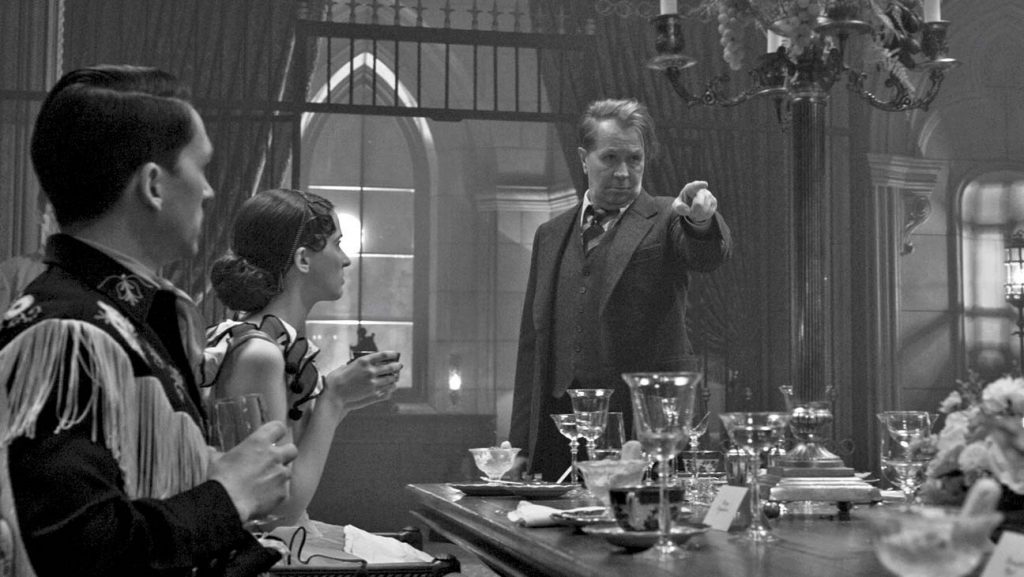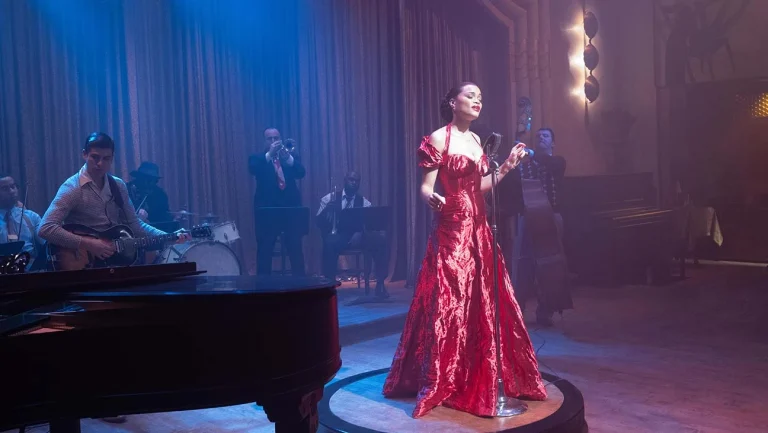Judas and the Black Messiah (4 Stars)
Mank (4 Stars)
United States vs Billie Holiday (4 Stars)
Interestingly, I rated all three of this year’s entries in the biography genre 4 stars, which means I really like all of them. But there certainly is a lot to distinguish between these movies.
Billie Holiday was a singer and, like many other singers, she had a troubled childhood, had some difficulty dealing with success, and died early (age 44) from the effects of substance abuse. There are many films that explore this same arc, especially in the music industry. (I can think of Amy Winehouse, for one, but there are many others.)
The United States vs Billie Holiday is not a perfect film, but the performance by Andra Day in the title role is so near perfect that you need to see the film just for that. Not only does she sing a dozen of Holiday’s songs with the same raspy and smoky blues quality, but she also exposes Holiday’s vulnerabilities and desires right down to her naked sexuality. Although one of Day’s first movie performances, I think we will be seeing more of her in the future.
What makes this Billie Holiday a little different from other musicians biographies is that she also, if we are to believe the movie, had to deal with constant harassment from the FBI including prosecutions for narcotics possession. The reason the FBI targeted her, for twenty years, had a lot to do with her performance of the song “Strange Fruit” which portrayed the barbarism of black lynchings in the South. J. Edgar Hoover did not like the idea of bringing white racism out in the open, and sought ways to prevent Holiday from performing the song.
That Hoover hated blacks is well known and surfaces again in the film Judas and the Black Messiah. Hoover himself labeled Fred Hampton “The Black Messiah”, although he was known by his people as “The Chairman” of the Black Panthers. The film suggests that Hoover’s FBI used a black petty-thief, Billy O’Neal, to inform on Hampton’s activities and – controversially – may have facilitated a police raid that killed him.
Supposedly, there are two biographies going on in this film, but O’Neil (Judas) is never adequately fleshed out and we never fully appreciate his motives in this film. Both actors (David Kaluuya as Hampton, and LaKeith Stanfield as O’Neal) were nominated for Supporting Actor, and Kaluuya won the Oscar. Both did great jobs, but I fault the script for not fleshing out these characters in more substantial ways. Nonetheless, this is also a film worth watching.
And then there is Herman Mankiewicz (Mank) the person deemed responsible for writing the screenplay for Citizen Kane, arguably the best movie ever made. Mank, and his screenplay, won the only Oscar for Citizen Kane, even though it received eight other nominations at the 1942 Oscars. Mankiewicz scored some early successes as a screenwriter, but as the depression took hold, and panicked capitalists reacted selfishly, Mankiewicz realized that things weren’t going well for neither the country nor his industry. He became increasingly cynical and turned to alcohol as his refuge. Orson Wells gave him on last big opportunity to write the Citizen Kane script and it was, in many ways, his swan song.
Mank pulls out all the stops in trying to recreate the cinematic arts of the time. Although the movie was filmed in digital color, it was converted to monochrome which has an effect of retaining rich variations in shades, even in black and white. The sound was intentionally degraded to include the hisses and pops that were standard with films of the times. But most importantly, is Gary Oldman’s performance as a complex man, torn in many pieces. One of the final scenes where Oldman is performing as a drunk Mankiewicz at a big Hollywood party is a master-class in acting.
And so all three of this year’s biographical films deal, to different degrees, with the intersection of politics and entertainment. Billie Holiday was hounded by the same FBI that relentlessly pursued Fred Hampton. And Henry Mankiewicz was caught in a downward spiral created by his disillusionment with the capitalist system. All three characters died untimely deaths that cut short future accomplishments. And all three characters are richly portrayed in, although not perfect films, works that deserve a viewing. Pick based on the world, or person you want to explore. But you won’t be disappointed by any of them.


